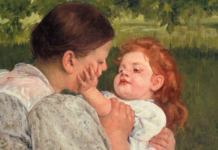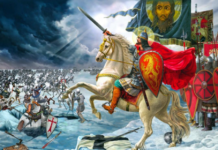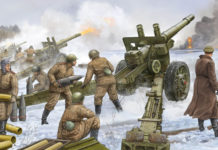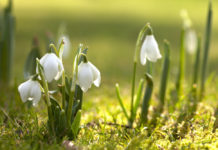Proverbs about courage make it possible to better understand what real courage and courage are. How rare these qualities are and how highly they are valued, are narrated by the sayings of folklore.
Material Content:
Russian proverbs about courage
Since ancient times, the Russian people have been so led that life itself was valued less than a desperate readiness to part with it at any time. For hundreds of years in a row, people fought each other, and during periods of calm there was a chance that the peace period would not last long. To defend their land or conquer a stranger, warriors were needed who could neglect the danger to achieve the goal.
And such people appeared. Names were chanted in verses and ballads, and their qualities were extolled in proverbs and sayings. Each of them admires how heroically a person is able to overcome fear and fight weaknesses. It often happened that a soldier died on the battlefield, but his heroic impulse benefited other people.
Wanting to support such people and honor the memory of them with kind words, the people composed proverbs about courage and courage, courage and self-sacrifice. Not everyone can repeat the path of such daredevils, but popular wisdom is trying to convey to future generations how important their contribution to the common history was, and to encourage young people to cultivate qualities that are useful for the whole society.
*
Fight is red with courage, and a friend is friendship.
Fighting courage loves.
The barking dog barks, while the cowardly vomits.
Better to be a dead hero than a living coward.
Whoever bravely beats the enemy, that glory will not die.
He who dreams of victory does not think of death.
Do not be afraid, and did not boast.
Bold eyes - well done beauty.
The brave will find there where the timid will lose.
Who goes forward, that fear does not take.
Where courage is, there is victory.
Courageous peas slurp, but timid and cabbage can not be seen.
Without courage, power falls on the pitchfork.
*
Folk wisdom about courage, courage and courage
Since most of the world's population lives under a patriarchal system, the desire for expansion and the militaristic spirit awakened by the leaders of states continue to receive the support of citizens. Traditionally, men's qualities have acquired the highest value not only on Russian soil. Folklore about courage and courage is still heard, it is passed down from generation to generation even in those countries where they have not heard about the war for many decades.
In the folk epos, examples of such behavior that are exceptional and delight people are firmly fixed. Famous Kalmyk, German, Tatar, Arabic, Mongolian, Spanish, African sayings dedicated to stamina, endurance and readiness for struggle.
And although times have changed significantly, for most people, oral folklore accumulated by previous generations still remains relevant. They listen to him and try to find particles of valuable knowledge in him that can be useful in modern life.
*
A leopard is not taken by the tail, while it is taken - it is not released. (Kalmyk proverb)
Strong is the one who brings down, stronger is the one who rises. (Russian proverb)
The mind is much more than power. Where power is useless, the mind will help out. (Egyptian proverb)
In a willing herd, the wolf is not terrible. (Russian proverb)
The power knows the truth, but does not like to tell. (German proverb)
The brave will find there where the timid will lose. (Russian proverb)
Do not swords of arrows that you cannot repel. (Arabic proverb)
Difficult to get around - not to see good. (Russian proverb)
Strength grows in the garden of patience. (German proverb)
Do not bare your saber to kill a mosquito. (from proverbs of African peoples)
Where you cannot jump, you can climb over there. (Russian proverb)
There is nothing to swing a flea with a knife. (Mongolian proverb)
Let the enemy seem like a mouse to you, but you have the power of a tiger. (Uyghur proverb)
Do not be courageous in the furnace, and do not rub in the field. (Russian proverb)
One who can eat a whole tortilla is not weak. (Arabic proverb)
A bold word supports the heart. (Spanish proverb)
Do not compare yourself with a rock, do not compare another with a straw. (Tuvan proverb)
A dog barks at a bold, but a coward bites. (Russian proverb)
The crown of courage is modesty. (Arabic proverb)
*
For children of preschool and school age
Studying the experience of previous generations, one often encounters such examples when a people or community survived thanks to fortitude, firmness and confidence in victory. The very desire and desire to win already gives strength and courage. History knows a lot of episodes when smaller troops defeated those that surpassed them in quantity and equipment.
Much depends on the mood of the warriors. Brave, self-confident fighters who believe that they are in favor of a just cause receive a significant advantage over an adversary who ponders, fears and doubts. That is why the warrior has always been subjected to the drill, she wears out thinking and introduces into the habit the ability to act on a command.
Of course, not everyone succeeds in teaching courage and self-sacrifice for the sake of a distant goal. There are people who experience less fear than others. And there are those who get used to overcome it. Sayings make it clear that attempts to conquer your fear are rewarded, and cowardice deserves condemnation and censure.
*
Courage is important, but skill is needed.
Courage is the power of the governor.
It is very important to fight bravely.
Fearing death is not a winner.
Do not lose courage, not a step back.
In a happy hour, death is not terrible.
The brave is not afraid of death; death is avoided by the brave.
He took the oath - show courage in battles.
The soldiers' business is to fight bravely and skillfully.
You will recognize the hero on the battlefield.
Fight bravely for your own business.
Who dared, he ate two.
Daredevil does not think for a long time.
The hero who stands behind the mountain for his homeland.
The brave does not need a long sword.
In battle, whoever is more stubborn and bolder, and not who is stronger.
*
The meaning of the proverb “Courage of the city takes”
Proverbs often use allegories, figurative comparisons, metaphors and antitheses. These artistic techniques help to better feel the emotional and semantic load of the message. Speech circuits that were used several centuries ago can complicate reading, but in most cases the meaning of the proverb is transparent.
“The courage of the city takes” - means that sometimes this quality is enough to achieve the goal. And no weapon can resist real courage. Opponents drop everything and scatter in panic when they see warriors with burning eyes, stubbornly rushing into the attack. The daredevils, who showed themselves on the battlefield, were highly honored and encouraged. They were awarded with medals and orders, they enjoyed great honor among their people.
Such people were compared with predatory animals, assigned them high ranks and sung in songs. Speaking of courage, it is worth mentioning that in the proverbs there are also recommendations to carefully use your potential. Attempts to mock the weak or waste their ardor without need are not encouraged.
*
Better to fight with an eagle than to live a hare.
Well done for the sheep, and for the well done the sheep themselves.
The gallant jumps, and the peaceful cries.
Better to die in the field than in the Indian hem.
*
The modern world, mired in wars and conflicts, prompts to rethink the wisdom of gray-haired antiquity. What is the role of courage, is it necessary to teach children this quality, and is courage today not inferior to sympathy, mutual understanding, respect for one's neighbor and ability to diplomacy, the new generation remains to judge.














